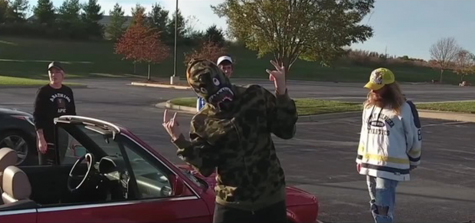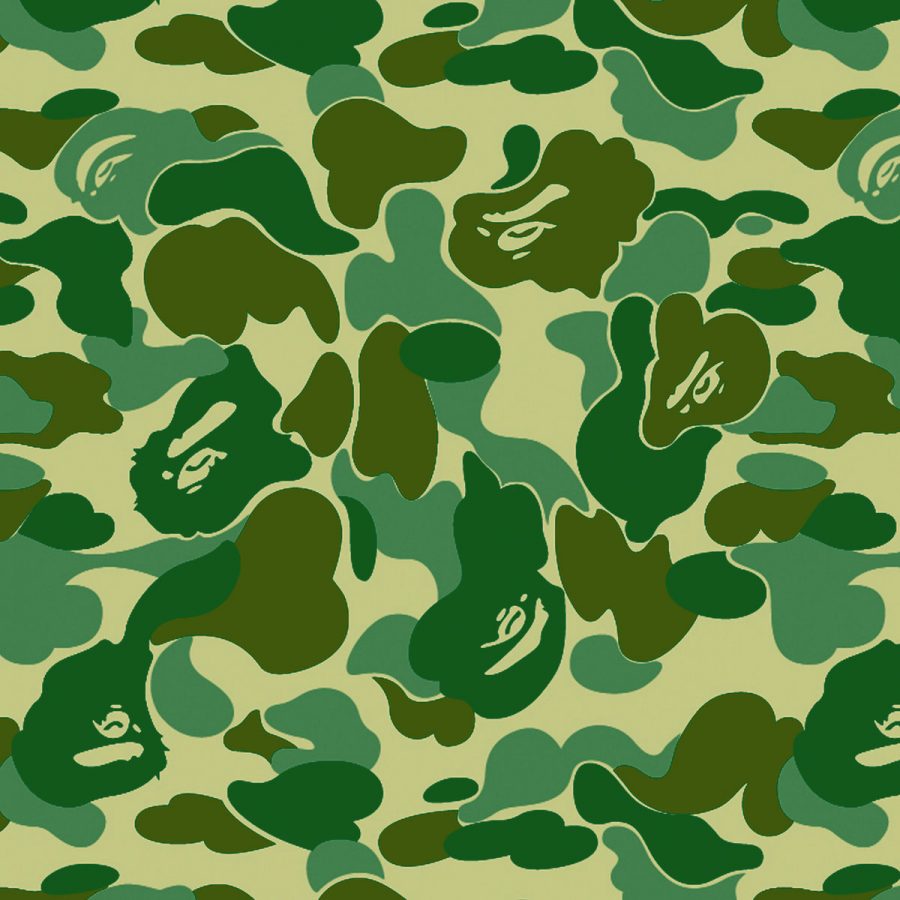The Strange, Simple Elegance of Oliver Francis’ Bape Music
From his bedroom in the suburbs of Ashland, Missouri, Alexander Francis Kelly, better known online as Oliver Francis, sits before his computer, exceptionally focused. On the screen is an FL Studio project, open and nearing completion. Francis meticulously arranges his kick drums, making sure everything sounds harmonious together. As he triple checks every last detail, he makes any necessary last minute adjustments and saves the project.
The instrumental is subdued but crafty, the melody sampled from a mid 2010’s Odesza track. His voice is plastered over some rather unsophisticated percussion patterns that, when combined with his vocals, and by extension his favorite autotune preset, makes for a final product that is stark in its simplicity but conspicuous in its elegance. On the track, Francis’ voice gracefully dances over the beat, suavely rapping about Styrofoam cups, 4 car garages, and Bape camouflage jackets. He exports the final song, and as he hits the save button a small icon materializes on his computer desktop. The graphic is a small, blue musical note, and below it reads “AAHYEAHH.mp3.”
Oliver and his friends buy a drone and shoot the music video for the song just a few weekends later, with shots of them driving down barren Missouri highways, dancing outside gas stations, and goofing off inside car washes.

Today, the music video for “AAHYEAHH” has amassed 5.3 million views. The song is streamed at least 200,000 times every month, totaling around 44 million streams since its release. It is one of the tracks that has amassed Francis a dedicated cult following and prestigious underground status.
Francis, 27, has been making music seriously since high school, although he’s been skating for much longer, since he was a young adolescent. He cites skaters like Bam Margera and other participants of the MTV show “Jackass” as his idols growing up. In an interview on No Jumper, a popular (at the time) underground rap podcast, Francis talks about how he used to rap in church as a kid. He also talks about how popular punk-rock band Green Day was the thing that made him learn to want to play guitar, and generally inspired him to get into music as a whole.
High school into early adulthood was a time of trial, error, and experimentation for Francis. After learning to play the guitar, He both formed and joined many bands with his friends during this time, a notable example of which was his band Treebeard, where he was a lead vocalist. He didn’t really start getting into making hip-hop music until around 2013.
He started out by sampling pre-existing tracks, sometimes several at once, and altering or reworking them all together to make new sounds, a popular practice in the underground producer/DJing scene known as “Flipping.” It wasn’t until later, however, that he combined these skills in music production and his previously attained talents for singing and songwriting to start making some serious rap music.
It’s hard to precisely pinpoint when exactly Francis started pumping out this kind of music. (arguably even harder to pinpoint when he started being good at it, if his early projects like “club swoosh” and “2013” are anything to go off of.) It was on March 21, 2016, however, that he dropped one of several breakout mixtapes he would release over the next few years titled “Things Aren’t That Simple.” His rap music began to garner him a cult following due to the relaxed and carefree, yet self-assured attitude he exuded through his music.
Over the next year, he would release several more tapes, most notably summer 2016’s “Burnout,” which contained numerous tracks that accumulated yet more exposure for Francis.
On the 1st of September of the same year, Oliver drops his acclaimed album “Bape Music” to much fanfare. On this record, his biggest hit, the aforementioned “AAHYEAHH,” can be found. Aside from it being his second most iconic work to date, second only to “Things Aren’t That Simple,” how does “Bape Music” stack up three years later?
The first thing you notice going into “Bape Music” are the vibes. Oli is as relaxed as can be on this project, and it makes for a sound that 2016 trap music was severely lacking at the time. Lyrically, Francis has done a lot of evolving since the early days of his rap catalogue. He began this era of his music-making career being very disingenuous, rapping about drugs, guns, and models. Typical for anybody in the trap scene. It’s something he’s detested in recent years countless times. He frequently speaks about how he regrets talking about those things in his music because they didn’t reflect how he really lived, and he’s since outright deleted a lot of older content from that era because of this lyrical content. Thankfully, it’s something he started phasing out back when “Things Aren’t That Simple” dropped, and something that is entirely, and thankfully, absent from “Bape Music”.
The lyrical content on this album is a far cry from your average trap tape, and it plays to one of Francis’ biggest musical strengths: his songwriting. Nothing’s really being glorified here, you can tell these songs are really just being performed by a normal dude who enjoys chilling with his friends and having a good time. The aforementioned “AAHYEAHH” is a prime example of this musical mentality. Sometimes, bars can get repetitive, and he’ll often reuse metaphors across different tracks completely, but rather than this being a detriment, because of the kind of album this is, it instead works in its favor, making the sound of this particular album concrete and plainly evident when compared to the sounds both his past and future projects would exhibit. That’s the thing about Oliver Francis: each album is a different vibe entirely. Sometimes it’s vauntingly relaxed, like 2016’s “Burnout,” other times its rather somber or reflective, like 2017’s “A Million Miles an Hour,” and sometimes dark, like 2016’s “Things Aren’t That Simple.”
This leads perfectly into another reason this sort of auditory cohesion; the kind that made Francis popular, is so obviously a benefit to his music’s overall enjoyability: All of his songs are self produced. He makes all the beats for his songs by himself before he records them. This allows him to perfectly fine tune the individual aspects of a single song, as well as the complete atmosphere of an entire project so that it all meshes together in a strange, simple, curiously endearing way. You could describe the sound of bape music like an unusually competent trap album stuck in a playground. It’s deceivingly clever, and for a guy that repeatedly raps about Polo boxers, Tommy Hilfiger jeans, and Fiji water in the same song, his confidence is refreshing. Not because it’s arrogant, but because it’s silly, and he wants you to know that he knows it.
The sound of his instrumentals take inspiration from many genres and subgenres that find their roots on the internet and on Soundcloud specifically. A lot of his earlier rap catalogue was classified under “Cloudrap,” a relic of Soundcloud rap culture’s inherent obsession with more gloomy, depressed sounds and styles of both songwriting and production.
Bape Music’s overall sound finds some influence in this category, as well as sounds that integrate elements from genres like Vaporwave, Future Funk, and Pop-rap. A lot of the samples found on bape music’s beats sound like they were ripped straight out of an Artzie Music compilation tape. It’s a sound that that only Francis could put out. It’s something that his contemporaries just can’t replicate.
The consensus? Oliver’s “Bape Music” is a surprisingly proficient and standout trap album with many qualities that give it a sound that is unparalleled in its genre. It’s a bubbly, savvy, and overall fun listen with many memorable moments to boot.

Braeden Meadows is a 2021 Graduate of Liberty High School and former Managing Editor for The Patriot Press. They are now a part-time freelance journalist,...


![[Actual Photo from a review on TripAdvisor]](https://libertypatriotpress.com/wp-content/uploads/2025/05/Screenshot-2025-05-29-133216-600x406.png)




Tara • Feb 10, 2020 at 12:43 pm
I love his music